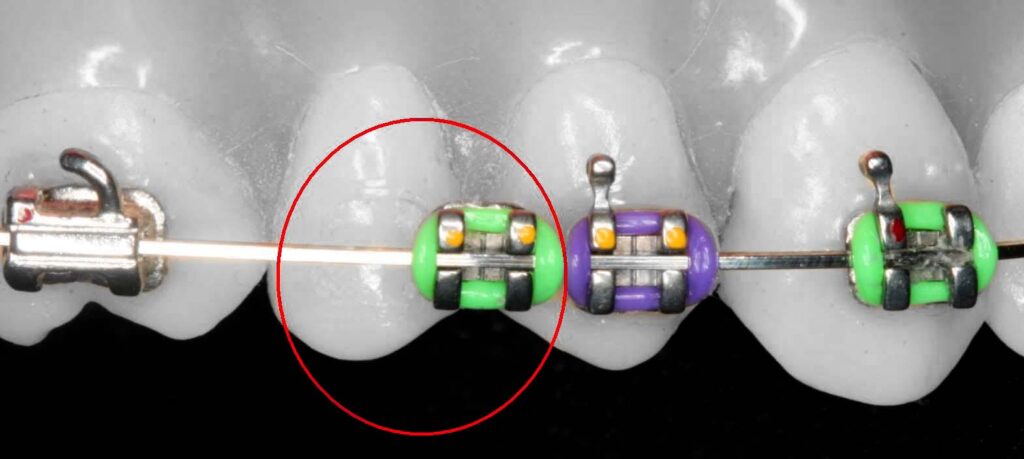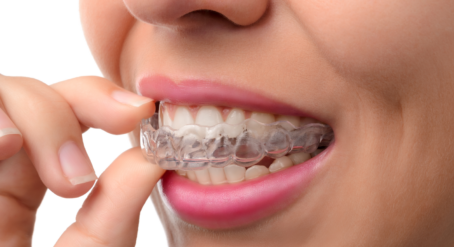Braces are complicated — just look at all the parts! An army of purpose-built components work together day and night to give you a confident smile. And while they’re strong, braces aren’t indestructible. Like your teeth, they may need a little correcting from time to time.
Wires can protrude with teeth movement, brackets may become loose, and abrasion can occur in the soft tissue of your mouth.
So, what do you do when this happens? Whether you’re new to braces or on the home stretch of treatment, we’ve compiled everything you need to know about broken or dislodged braces and wires and how to navigate them.
If you suspect your braces are broken, there’s a good chance they are. But not every niggle or pang indicates breakage — especially in the early stages of treatment.
Some common faults with braces include:
- Loose or missing brackets
- Broken or loose wires
- Severe discomfort or pain in teeth
- Loose spacers
- Loose bands
Some of these may cause more discomfort than others. If a broken bracket causes a wire to protrude, it can be quite uncomfortable. We’ll run through a full list of fixes below, but if this happens, don’t panic, just contact your orthodontist.

If a bracket is correctly installed, and the wearer is taking due care, brackets shouldn’t fall off. However, it’s not uncommon for them to loosen, even if your orthodontist has fixed them properly. And particularly if you have a habit of eating some of the foods that you’re told to avoid, like hard candy or nuts. Below are some common reasons your bracket might have popped off.
Your habits
Biting patterns can also play a role. Your bite will be checked and accounted for before you get your braces, but patterns can change over time and stress the braces. Those who play contact sports are also susceptible, as are those who grind their teeth, a mouthguard should be considered.
Application Issues
When adhering brackets, the tooth’s surface might have debris or not be entirely dry. This will compromise the dental cement and can lead to your brackets loosening.
Another issue can be due to an underlying tooth condition. Defective chalky enamel and existing fillings may weaken the bracket bond. Your orthodontist has techniques to counter these troublemakers, but it can make the application process less effective, and follow-up treatment will be necessary if there are any issues.
One thing worth remembering is that the glue sticking your brackets on is strong but not indestructible. It needs to be strong enough to keep your brackets on during treatment, yet weak enough to safely remove your brackets at the end of your treatment. This is why it is important to avoid habits and foods which might break the glue.

If you can, the first thing you should do when a bracket pops off is to call your orthodontist’s office, they will be able to give you a plan of attack catered to your situation. It is important to call to ask if your brackets need to be repaired immediately, as your teeth may shift, and this may mean you have to wear your braces longer. Calling the office also really helps your orthodontist and their staff prepare ahead for your next appointment, as a new bracket will often be placed to replace the broken one. Although prevention is better than cure, helping your orthodontist prepare ahead is very beneficial.
If you cannot contact your orthodontist’s office, there are some short-term fixes. If the bracket is loose but attached, then orthodontic wax may be able to secure it until your appointment.
If the wire is exposed, sugarless gum can protect the area for a short while. The wire can be snipped with sterilised nail clippers or cuticle scissors, but only as a last resort as this can cause further issue with your braces.
If wires or brackets do cause an abrasion in your mouth orthodontic wax can act like a band-aid barrier and give soft tissue time to heal. Just dry the wire or bracket well with tissue and roll the wax up into a pea-sized ball and flatten it over the offending area.
The best place to start is by getting in touch with your local orthodontist using our finder tool. They’ll be happy to give personalised advice on any of the above topics.
For more on braces, read about how to care for them, how to survive special occasions wearing them, and our five life hacks for living with them.









